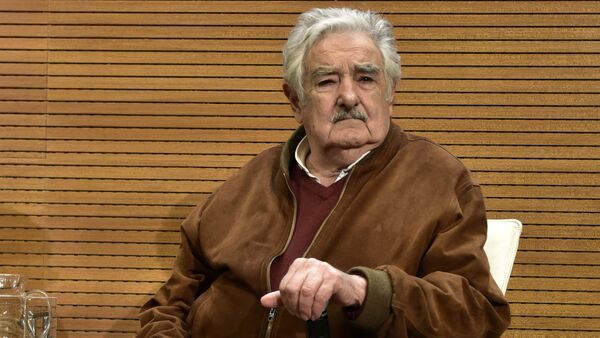"The fact that he led a revolution 90 kilometers [55 miles] away from the world’s leading power, meant constant self-defense … To live in the Caribbean and challenge the US is a feat of a Don Quixote," Mujica said.
Castro started the revolution in 1959 when he forced out dictator Fulgencio Batista and proclaimed a revolutionary social state. The United States tried unsuccessfully to remove him by assassination and the Bay of Pigs invasion by Cuban exiles in 1961.
Mujica, who arrived in Cuba in the wake of Fidel Castro's death, described the revolt as a "sentence, a tragedy for people who wanted to go their own way during the Cold War."
"The Cuban revolution required a lot of effort and military expenses, preparations. Hundreds of billions of hours were spent in mistrust and a life in constant state of self-defense, instead of productive work," he added.
Fidel Castro passed away last week at the age of 90. His ashes arrived on Saturday in the historic city of Santiago, from where he marched on Havana at the start of the 1959 uprising, and are due to be interred on Sunday.



